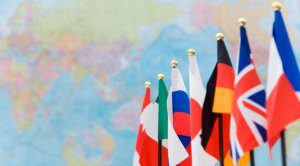 With our inaction, we reveal our reluctance to stand up to China’s human-rights abuses and aggressive international behaviour when China has a sufficiently large market for our goods and services, writes Balkan Devlen in iPolitics. Below is an excerpt from the article, which can be read in full here.
With our inaction, we reveal our reluctance to stand up to China’s human-rights abuses and aggressive international behaviour when China has a sufficiently large market for our goods and services, writes Balkan Devlen in iPolitics. Below is an excerpt from the article, which can be read in full here.
By Balkan Devlen, June 21, 2021
When G7 leaders met last weekend in Cornwall, U.K., they had the opportunity, in the words of the communiqué, to reaffirm their commitment to “open societies and economies” and to “our shared values of democracy, freedom, equality, the rule of law, and respect for human rights.” But the opportunity was largely squandered with a weak statement and vague language. Things that should have been said were left unsaid.
First is the failure to take a clear and unambiguous stand against China. The language in the final communiqué is largely anodyne, and only mentions China three times in a 14,000-word statement. Although referring to the previous foreign-ministerial statement with much stronger wording against China’s human-rights abuses, the final communiqué fails to emphasize the ongoing genocide in Xinjiang, and only obliquely mentions the use of slave labour in the region, but without naming China. The section on Taiwan fails to mention China’s responsibility for the “unilateral attempts to change the status quo and increase tensions.” This subdued and evasive language is in sharp contrast to the strong and principled statements against Russia; the communiqué urges the latter to “stop its destabilizing behaviour and malign activities.”
The push-back and watering down of the language likely came from the European members of G7 that are reluctant to upset their trade relationships with Beijing, despite the recent shock of Chinese sanctions against European Parliament members and scholars, and the increasing — albeit gradual — recognition by the European political and diplomatic elite of the threat China poses to the liberal international order. It’s nevertheless a missed opportunity for the liberal democracies to draw a line in the sand against the human-rights abuses and aggressive foreign policy of the Chinese Communist Party (CCP).




